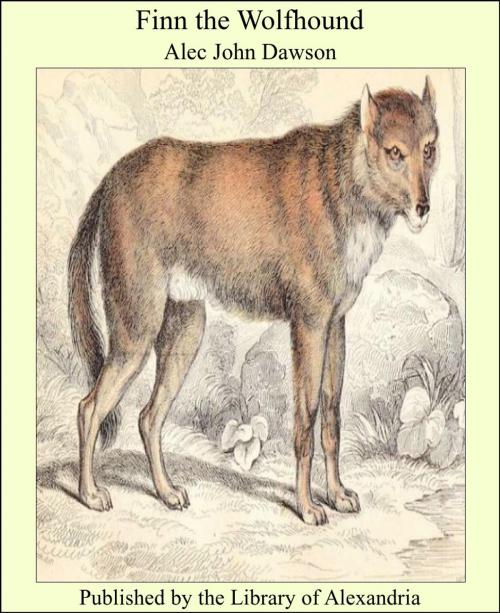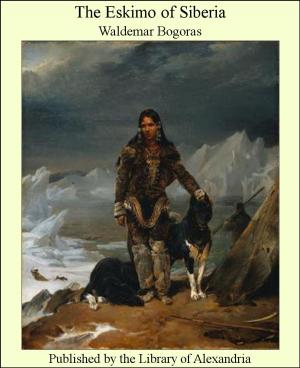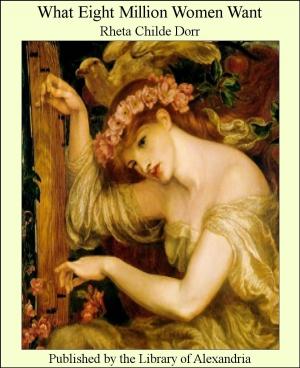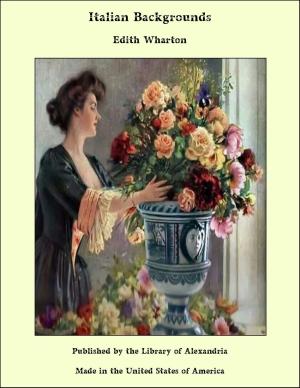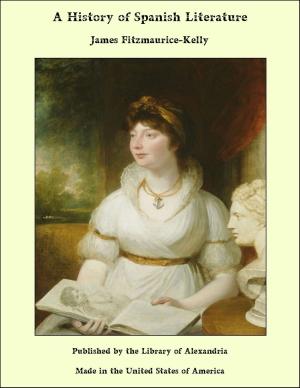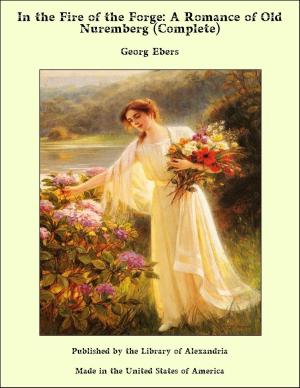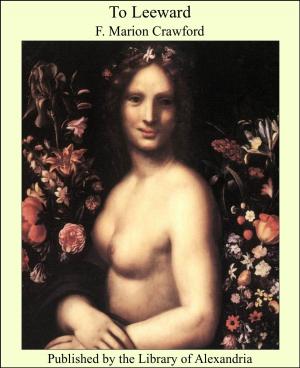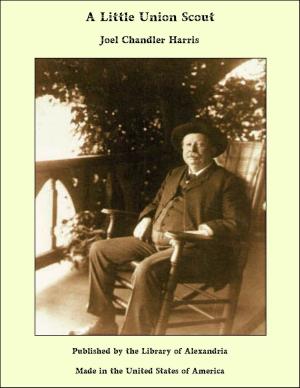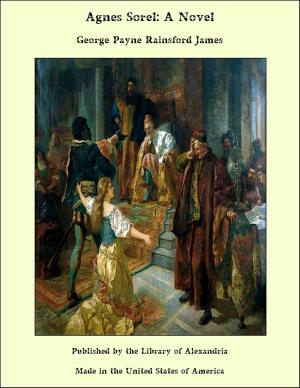| Author: | Alec John Dawson | ISBN: | 9781465520685 |
| Publisher: | Library of Alexandria | Publication: | March 8, 2015 |
| Imprint: | Language: | English |
| Author: | Alec John Dawson |
| ISBN: | 9781465520685 |
| Publisher: | Library of Alexandria |
| Publication: | March 8, 2015 |
| Imprint: | |
| Language: | English |
THE MOther OF HEROES For a man whose thirtieth year was still not far behind him, the man's face was over careworn. It suggested that he felt life's difficulties more keenly than a man should at that age. But it may have been that this was a necessary part of the keenness with which the whole of life appealed to him; its good things, as well as its worries. He rose from his writing-table and straightened his back with a long sigh, clenching both hands tightly, and stretching both arms over his shoulders, as he moved across the little room to its window. The window gave him an extensive view of dully gleaming roofs and chimney-pots, seen through driving sleet, towards the end of a raw forenoon in February. The roofs he saw were those of one of London's cheap suburbs; first, a block of "mansions" similar to those in which his own flat was situated; then a rather superior block, where the rents were much cheaper because they were called "dwellings"; and beyond that, the huddled small houses of a quarter with which no builder had interfered since early Victorian days. wolfhound head The man turned away from the dripping window, and looked round this den in which he worked. Its walls were mostly covered by book-shelves, but in the gaps between the shelves there were pictures; a rather odd mixture of pictures, of men and women and dogs. The men and women were mostly people who had written books, and the dogs were without exception Irish Wolfhounds; those fine animals which combine in themselves the fleetness of the greyhound, the strength of the boarhound, and the picturesque, wiry shaggyness of the deerhound; those animals whose history goes back to the beginning of the Christian era; through all the storied ages in which they were the friends and companions of kings and princes, great chieftains and mighty hunters. For several minutes the man paused before a picture, underneath which was written: "The Mistress of the Kennels." This picture showed a girl with wind-blown hair, happy face, and laughing eyes, standing, with a small puppy in her arms, in the midst of a wide kennel enclosure on the sloping rise of an upland meadow. In the background one saw a comfortable-looking house, half hidden by two huge walnut trees, and flanked by a row of aged elms. When the man had looked his fill at this picture, and at Other pictures of various Irish Wolfhounds, each marked with the name and age of the hound depicted, he sighed, and went to the window again. While he stood there, looking out through the February sleet, the door of the den opened, and the Mistress of the Kennels came in, wearing a big, loose overall, or pinafore, which covered her dress completely. Her face had not quite the colour which the picture made one feel it must have had when she stood in that wide, windy, kennel enclosure; but it was still a sunny face; the eyes were still laughing eyes; a loving, lovable face, one felt, even though London had robbed it of some of its open-air freshness. She walked up to the man's side, and, seeing the expression on his face as he gazed out over the wet roofs, she said-"Yes, it is, rather--isn't it?--after Croft
THE MOther OF HEROES For a man whose thirtieth year was still not far behind him, the man's face was over careworn. It suggested that he felt life's difficulties more keenly than a man should at that age. But it may have been that this was a necessary part of the keenness with which the whole of life appealed to him; its good things, as well as its worries. He rose from his writing-table and straightened his back with a long sigh, clenching both hands tightly, and stretching both arms over his shoulders, as he moved across the little room to its window. The window gave him an extensive view of dully gleaming roofs and chimney-pots, seen through driving sleet, towards the end of a raw forenoon in February. The roofs he saw were those of one of London's cheap suburbs; first, a block of "mansions" similar to those in which his own flat was situated; then a rather superior block, where the rents were much cheaper because they were called "dwellings"; and beyond that, the huddled small houses of a quarter with which no builder had interfered since early Victorian days. wolfhound head The man turned away from the dripping window, and looked round this den in which he worked. Its walls were mostly covered by book-shelves, but in the gaps between the shelves there were pictures; a rather odd mixture of pictures, of men and women and dogs. The men and women were mostly people who had written books, and the dogs were without exception Irish Wolfhounds; those fine animals which combine in themselves the fleetness of the greyhound, the strength of the boarhound, and the picturesque, wiry shaggyness of the deerhound; those animals whose history goes back to the beginning of the Christian era; through all the storied ages in which they were the friends and companions of kings and princes, great chieftains and mighty hunters. For several minutes the man paused before a picture, underneath which was written: "The Mistress of the Kennels." This picture showed a girl with wind-blown hair, happy face, and laughing eyes, standing, with a small puppy in her arms, in the midst of a wide kennel enclosure on the sloping rise of an upland meadow. In the background one saw a comfortable-looking house, half hidden by two huge walnut trees, and flanked by a row of aged elms. When the man had looked his fill at this picture, and at Other pictures of various Irish Wolfhounds, each marked with the name and age of the hound depicted, he sighed, and went to the window again. While he stood there, looking out through the February sleet, the door of the den opened, and the Mistress of the Kennels came in, wearing a big, loose overall, or pinafore, which covered her dress completely. Her face had not quite the colour which the picture made one feel it must have had when she stood in that wide, windy, kennel enclosure; but it was still a sunny face; the eyes were still laughing eyes; a loving, lovable face, one felt, even though London had robbed it of some of its open-air freshness. She walked up to the man's side, and, seeing the expression on his face as he gazed out over the wet roofs, she said-"Yes, it is, rather--isn't it?--after Croft
